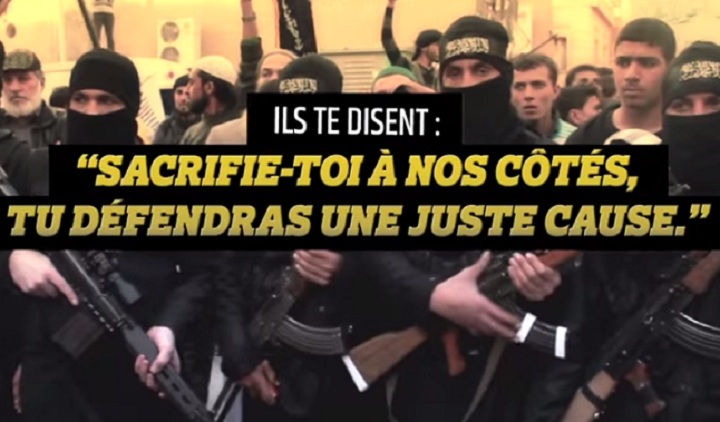Canada has made eliminating propaganda that supports ISIS, and other terrorist groups, a priority in newly proposed anti-terror legislation.

Bill C-51 would make it an offence to promote or advocate “the commission of terrorism offences,” and paves the way for the RCMP to seek a judicial order to remove such propaganda — which often aims to recruit foreign fighters or supporters — from the Internet.
The problem is, ISIS and extremist organizations are quite adept at getting around online obstacles to get their messages out, and move faster to find new avenues to spread their ideals than authorities can keep up with.
“By the time they actually go through this legislation, even if it takes a few days, it’s still not fast enough to keep up with the propaganda that’s being put out there,” said Muhammed Robert Heft, a de-radicalization counsellor based in the Toronto area.
READ MORE: Google says YouTube bulk makes it tough to catch all terror-related videos
ISIS “fan-boys” are quick to replace Twitter and other social media accounts that get flagged for their content, he said, and have plenty of alternatives to YouTube to distribute videos like Message of the Mujahid — a clip uploaded in December featuring Ontario-born, Muslim convert John Maguire issuing a threat of more attacks on Canadian soil. Maguire was reportedly killed in early January.
- New Trump tariffs are coming. Where will Canadians feel the pinch first?
- Consumer carbon price ends April 1. Your savings could be ‘significant’
- Liberal candidate to stay in race despite China bounty remark: Carney
- World-renowned Canadian doctor says NYU cancelled her talk for being ‘anti-government’
While Canada is taking measures to limit the online reach of extremist messages, the governments of France and the U.S. have employed a different online counter-terrorism tactic and produced media emulating ISIS propaganda, trying to dissuade potential foreign recruits.

Get breaking National news
France’s Stop-Djihadisme (Stop Jihad) campaign went online just three weeks after 17 people were killed in terror attacks carried out by radicalized French citizens, connected to al-Qaeda in the Arabian Peninsula and ISIS.
The effort includes a video, highlighting ISIS’ prolific use of social media as a recruitment tool, attempts to debunk the militant group’s claims that would-be fighters or supporters will be “helping the children of Syria” and “defending a just cause. ”
“In reality, you’ll discover hell on earth and die far from home,” the video captions read. “In reality, you’ll be an accomplice in the massacre of civilians.”
READ MORE: Are you already violating the feds’ new anti-terror bill?
The French attempt at countering radicalism online resembles the U.S. State Department’s “Think Again, Turn Away” campaign, which has more than a dozen videos on YouTube sharing a similar message — videos with titles such as ISIS Kills Muslims, Young People fooled by ISIS/ISIL and ISIS leaves only tears & rubble. A complementary Twitter account not only takes on ISIS’ ideology, it actively trolls ISIS followers and proponents on the social media site.
Heft suggested messages created by Muslim scholars are more likely to dissuade someone susceptible to radical ideology, more than a counter-narrative put forth by the very authorities — government and police — whom that individual may mistrust.
“Some of these newcomers to Islam… they’re like a sponge. So, whoever gives them the most attention, are going to be the people they’ll most likely listen to. And, usually it’s these ideologically driven people because they want to use the new Muslims, in the case of ISIS, as a propaganda tool.
“The real counter-message is going to come from within the community,” Heft said. “When it comes from the government, it kind of empowers them in many ways and it makes them almost think that what they’re doing is more legitimate.”
READ MORE: How does Canada’s intelligence oversight compare to other countries?
Benjamin Ducol, a post-doctoral fellow at the University of Montreal’s International Centre for Comparative Criminology, questioned to what extent government-produced messages will successfully quell radical ideologies.
The clips aren’t overly expensive to produce and give governments a means to say they’re making an effort to counter terrorism and radicalism. But, they also serve a more nationalist purpose, Ducol said.






Comments